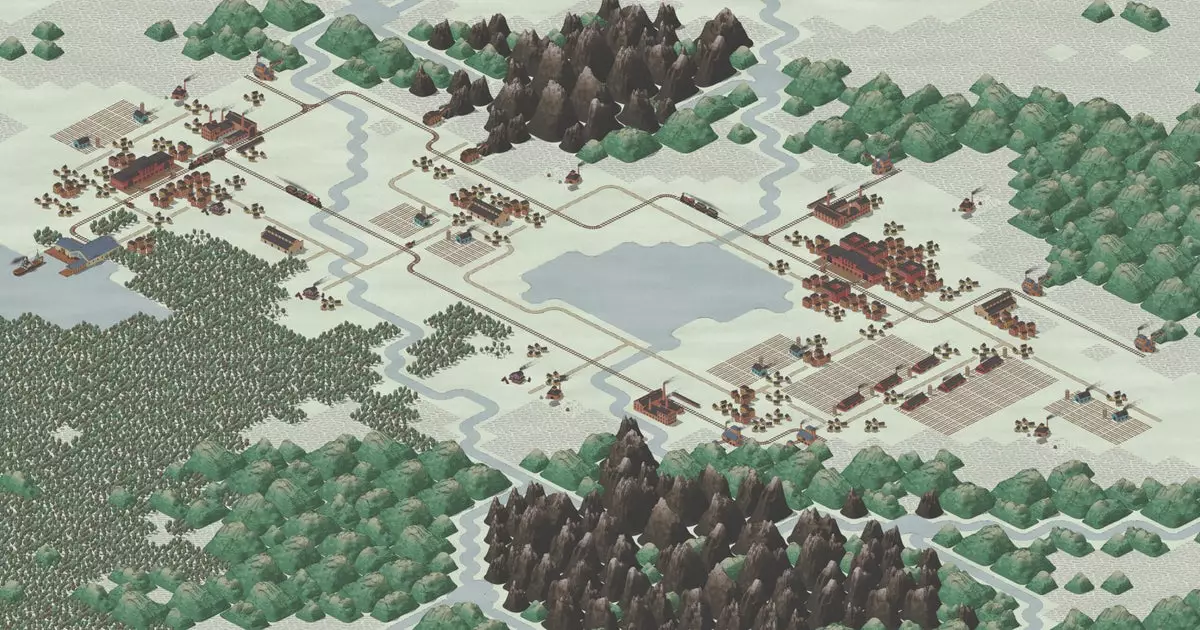Times Of Progress marks a significant moment in the realm of city-building games, not just for its engaging mechanics but also for its unique perspective rooted in the Industrial Revolution. Unlike many of its genre predecessors that often lean heavily on fantasy or modern settings, Times Of Progress transports players to an era rich with innovation and societal change, characterized by the rise of steam engines, urban development, and evolving labor dynamics. This historical context sets a compelling stage for gameplay that encourages strategic thinking rather than mere aesthetic gratification.
The game’s distinctive introduction to a burgeoning century of industry is reminiscent of the intellectual thrill of planning urban landscapes in the midst of evolving technology. Players are not merely constructing buildings; they navigate the complexities of economic growth, worker satisfaction, and political landscapes. This far-reaching impact is encapsulated in the analogy of being an architect during a pivotal historical paradigm—there lies both potential for prosperity and the palpable fear of downfall.
At first glance, Times Of Progress captures the imagination with its clean, appealing visuals. The isometric presentation creates a vibrant world, where roads and railways weave through intricately designed neighborhoods. The game’s use of color—earthy tones and rich reds—enhances its aesthetic charm without overwhelming the senses. This minimalist yet detailed approach allows players to focus on the core mechanics while immersing themselves in a visually rewarding experience.
Animated elements, such as smoke rising from chimneys and dynamic building transformations, add depth to the environment. As players progress through the game, there is a noticeable transition from simple structures to elaborate edifices, visually reflecting the advancements of the Industrial Revolution. This attention to detail is not merely for show; it serves to underline the player’s advancements and the bustling nature of the cities they create.
One of the key gameplay mechanics that sets Times Of Progress apart is its timeline approach to technological advancement. Players are encouraged to achieve specific goals, unlocking new technologies strategically as part of the narrative progression associated with the Industrial Revolution. This distinct approach fosters a more profound engagement with the historical context of the game, as players begin to understand the significance of each unlocked technology—not merely as a gameplay enhancement but as a marker of their city’s evolution.
Trade is the lifeblood of Times Of Progress, necessitating savvy economic maneuvering. In the absence of militaristic elements, the game focuses on trade relationships between various cities governed by AI, making every decision feel impactful. The mechanics of importing technologies and materials not only enhance gameplay but also amplify the interconnected nature of urban development during the Industrial era.
Additionally, labor politics introduce a layer of complexity that many city-building games often overlook. Workers’ rights and labor movements become pivotal elements of the gameplay, allowing players to navigate between fulfilling worker demands and maintaining productivity. This duality adds another layer of realism, highlighting the societal struggles underpinning the era’s progress.
Times Of Progress presents a balanced fusion of strategy and historical fidelity, allowing players to enjoy intricate city-building mechanics while engaging thoughtfully with the era’s complexities. The combination of beautiful aesthetics, meaningful technological progressions, and labor dynamics forms a well-rounded experience that resonates with both casual players and seasoned strategists.
As the game evolves and gains more recognition beyond its indie roots, it holds the promise of becoming a cornerstone within the city-building genre. Developers like Pressing Thumbs Games continue to emphasize innovation, refining their approach with each update that may further highlight the delicate balance between history and gameplay. For aficionados seeking a game that challenges as much as it entertains, Times Of Progress stands out as a compelling option deserving of exploration. It’s a journey through time and a testament to the struggles and triumphs of urban progress, waiting to be discovered by an eager audience.

